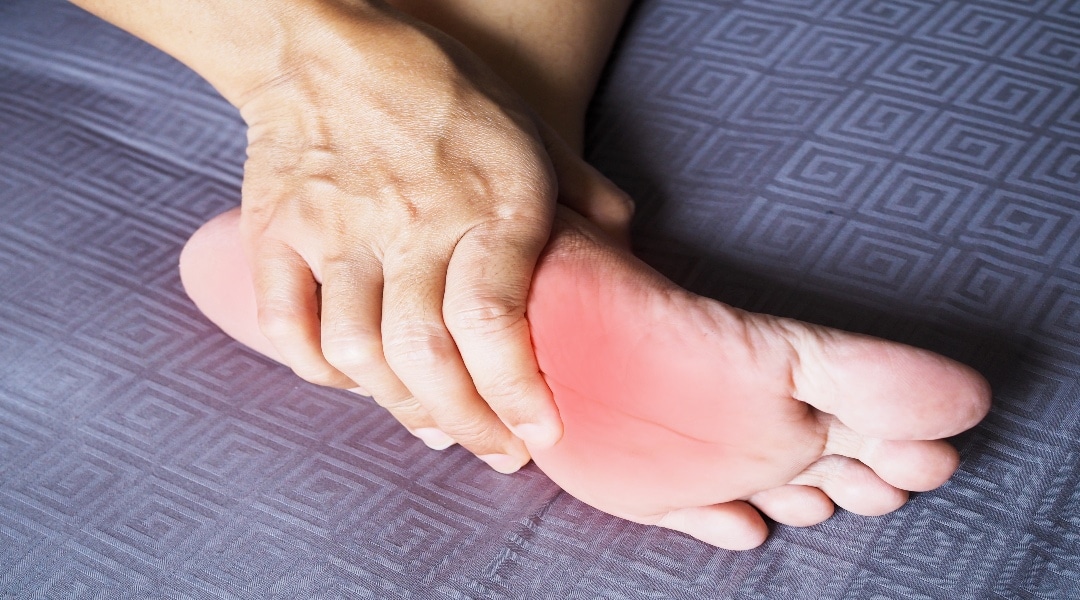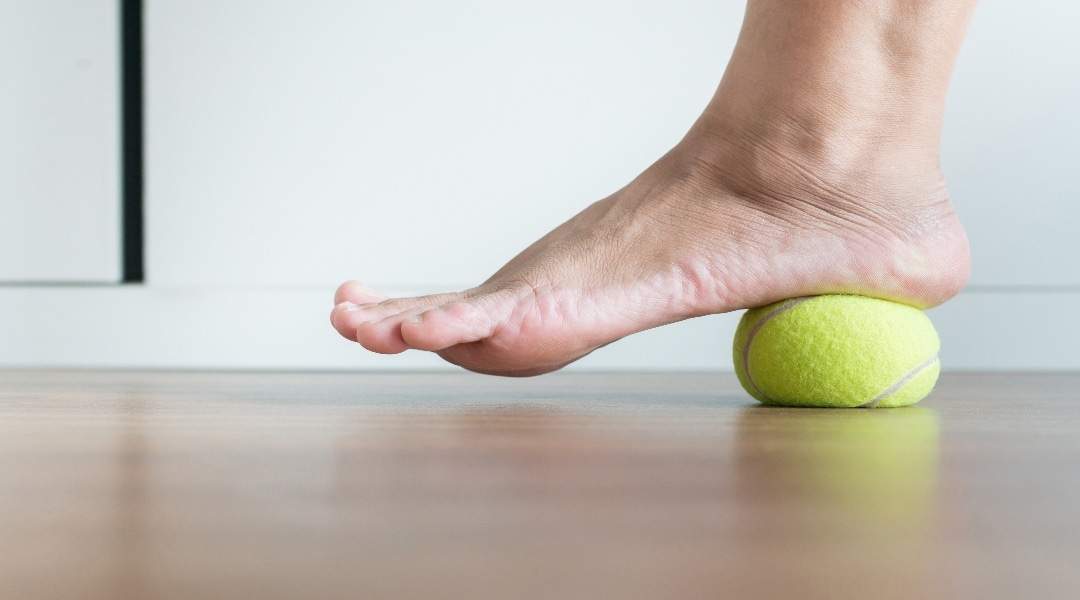Do you experience a sharp jolt of heel pain when your feet first hit the floor each morning? Does it take a few moments of gingerly stepping about until the pain subsides and you can continue on with your day?
Does that heel pain occur just about any time you start moving again after sitting or standing for a long while, or at the end of a long day in which you were on your feet for long periods of time?
If these symptoms sound familiar, there is a significant chance that your heel pain is caused by plantar fasciitis. It is one of the most common diagnoses for heel pain we see – but the good news is that it also tends to respond very well to treatment.
If any form of heel pain is giving you persistent trouble, please don’t hesitate to reach out to us for help. The sooner the problem is properly identified and addressed, the sooner you can find the relief you need!
What is Plantar Fasciitis?
You have a thick band of tissue that reaches from your heel bone (calcaneus) to the base of your toes. This is the plantar fascia.
The plantar fascia helps form the arch of your foot and also flexes as you walk, storing and releasing energy that aids in movement. When everything is functioning normally, it performs its duties without any problems whatsoever.
However, should the plantar fascia become too stressed or strained, the fibers of the band can start to fray and tear. This causes the pain and inflammation that you may be quite familiar with.
What Causes Plantar Fascia Strain?
There can be multiple causes of plantar fascia strain. There may be one primary cause that’s most at fault, or several contributing factors working together.
General causes of plantar fascia strain include:
- Overuse – Pushing your body too hard, too fast during activity. This can occur by either going all out at once without properly preparing or conditioning your body, or by repetitive impacts over time (such as distance running) without giving yourself enough opportunity to rest and recover.
- Abnormalities in Foot Structure – Conditions such as flat feet or overpronation that can cause excess force and pressure against the plantar fascia.
- Improper Footwear – Shoes that don’t provide enough support for the feet or are not intended for the activities they are used for.
- Hard Surfaces – Spending a lot of time standing or walking on hard surfaces (often as part of work) can add to plantar fascia strain.
But why does pain tend to be worse after periods of inactivity? That’s because the plantar fascia tends to tighten up during rest. The body is trying to heal the plantar fascia during this time, but as soon as you put weight on your feet again, tears can redevelop and cause that surge in pain.
How is Plantar Fasciitis Treated?
The best way to treat plantar fasciitis is by first determining what exactly is causing it. Without knowing these causes, attempts at treatment can be rather hit and miss.
We will take the time to physically examine your problem, as well as discuss with you all the factors surrounding your case (when pain is worst, the types of activities you participate in, etc.) Once we have all the information we need, we can recommend a treatment plan that best fits your needs.
Parts of a treatment plan may include:
- Rest, allowing enough time for your plantar fascia to fully heal.
- Custom orthotics, to shift excess pressure away from the plantar fascia.
- Changes to footwear and/or exercise routines to better accommodate your body.
- Specific stretches and exercises to condition the plantar fascia and connected elements.
- More advanced treatments, such as ultrasound therapy.
Conservative forms of treatment are most often effective within a few months. Surgery is considered only very rarely, if more conservative treatments have no effect.
The Heel Pain Care You Need in the East Bay
If your pain is chronic, not responding to any home treatments, or is accompanied by swelling, redness, or warmth, be sure to contact us promptly for an evaluation. Causes of heel pain can sometimes be challenging to determine on your own, and what you might think to be plantar fasciitis could be a stress fracture, Achilles tendinitis, or another sports injury instead.
Dr. Miyazaki will provide expert diagnosis and recommend the best treatment for your situation. Reach our Berkeley office by phone at (510) 647-3744 or contact us online to schedule an appointment with us.

